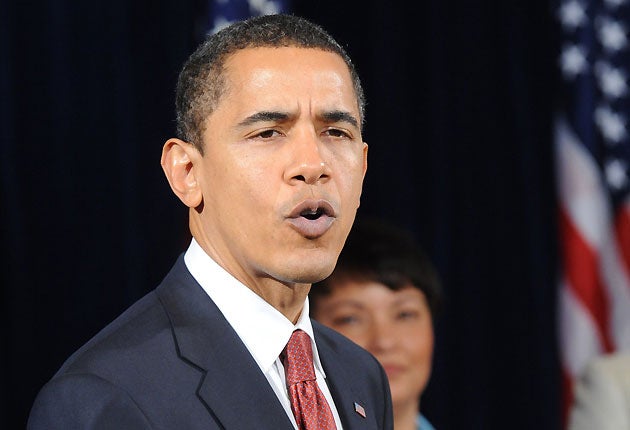Clean energy is the future
Historically the US is the biggest emitter of greenhouse gases, says Louis B Susman. But advanced developing nations such as China and India are vital to any solution

Climate change is a difficult and complex challenge for all countries around the world. However, as I begin my work as the new US Ambassador to the Court of St James's, one thing is clear: when it comes to facing the challenges of climate change, both at home and abroad, President Obama is taking the United States in a new direction.
The US will be a leader in the global effort to combat climate change. We have a responsibility as the world's largest historic emitter of greenhouse gases. We know that without US emissions-reductions, no solution to climate change is possible. And we are confident that the US can and will take the lead in building the 21st-century clean-energy economy.
On the domestic front, the President is working with Congress to pass comprehensive legislation to protect our nation from the serious economic and strategic risks associated with our reliance on oil and the effects of a changing climate. He is advocating policies that advance energy and climate security, and will promote economic-recovery efforts, accelerate job creation, and drive clean-energy manufacturing.
For example, the American Recovery and Reinvestment Act contains over $80bn for clean-energy investment. President Obama instituted new fuel standards for cars and trucks that will require an average fuel economy standard of 15km per litre in 2016. The clean-energy legislation that has passed the House of Representatives and is being developed in the Senate would cut US carbon emissions 17 per cent by 2020 and 83 per cent by 2050 from 2005 levels. The President has called this bill, "an extraordinary piece of legislation that will finally open the door to decreasing our dependence on foreign oil, preventing the worst consequences of climate change, and making clean energy the profitable kind of energy."
But while strong US domestic action is necessary, it is not sufficient. This is a crisis that demands a global solution. Over 80 per cent of future greenhouse-gas emissions will come from developing countries.
My government is pursuing a global strategy to combat climate change on a number of fronts, and we aim to work closely with all our partners in this effort. We are aggressively seeking an international agreement through the UN Framework Convention negotiating process. We have established an invigorated dialogue among 17 of the largest economies through the Major Economies Forum on Energy and Climate. We are elevating the climate and clean energy to a top-tier issue in key bilateral relationships, including that with the UK.
Two issues must be kept in mind as we move forward. First, developing countries such as China and India must play a critical role in any global solution to climate change. There is simply no way to preserve a safe and liveable planet unless China, India and other advanced developing countries play a very important role, along with the US, in addressing climate change. We believe the US and other major developed countries must speak with one voice on this issue.
Second, we believe our plans to curb emissions are comparable to those of EU nations, and any differences are too small to stand in the way of a global deal. For example, we believe that the US mid-term emissions target represents a level of effort comparable to those of the EU and other developed countries, combined with an ambitious long-term target. From an environmental perspective, the differences between the US and EU climate packages are very small – much smaller than the effect of unchecked emissions growth among advanced developing economies in the near future. According to some calculations, the net effect of the different projected trajectories of the US and EU on greenhouse-gas concentrations in 2050 is less than 2.5 parts per million.
Finally, we think addressing climate change is an economic opportunity, not a burden. The link between clean, sustainable energy and robust economic growth should be the hallmark of the 21st-century global economy. And while the US supports the fundamental right of all nations to develop, it is clear that the only way to achieve truly sustainable development is through a low-carbon pathway.
That is why the US will continue to work hard toward its goals of combating climate change, and reaching a strong international agreement that puts the world on the path to a clean-energy future.
Louis B Susman is the United States Ambassador to the Court of St James's
The sea is rising: Sea levels rose 1.8mm a year between 1961 and 2003. Between 1993 and 2003 it speeded up to 3.1mm a year. This may reflect the Greenland ice sheet melting
Join our commenting forum
Join thought-provoking conversations, follow other Independent readers and see their replies
Comments
Bookmark popover
Removed from bookmarks